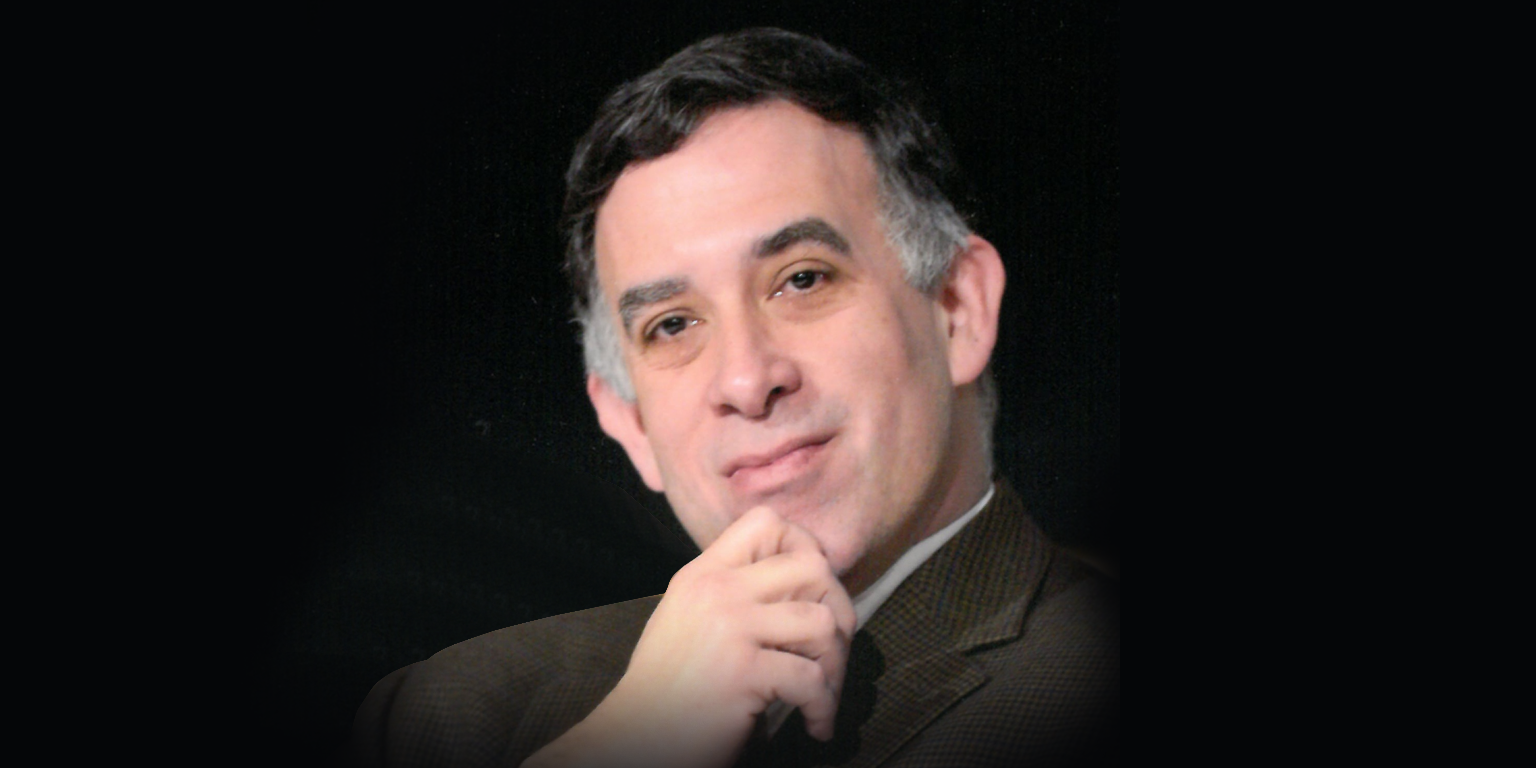Text: Guro Askheim Johnsen for SHESKILLZGLOBAL.
“At least the team needs to be diverse. Why would you not? This is the part I do not understand.”
Professor Maury Peiperl
Several years ago, I attended a management course at IMD in Lausanne. On the first day, we were given a test:“How to recruit in Japan”. I was new in the company with absolutely no recruitment experience. That day common sense was the winning key factor and probably a considerable portion of luck. It was also the start of a good friendship with Professor Maury Peiperl, who is today the Dean of George Mason University School of business. We are very proud to count on him as a mentor in the SHESKILLZGLOBAL mentoring program.
Professor Maury Peiperl is the third guest of the series “A chat with change leaders” on work-related topics, leadership, change management, gender equality and the vision of SHESKILLZGLOBAL “A world where talent has no gender”.
Professor Maury Peiperl is the Dean of George Mason University School of business. He has an extensive academic career in prestigious schools of management (Cranfield School of Management, IMD, London Business School). He is co-author of the leading textbook on change management, Managing Change (McGraw Hill) and the central reference in the careers field, The Handbook of Career Studies (Sage). He is a regular contributor to academic reviews.
What means to you «A world where talent has no gender»?
I think that is a fundamental truth. The challenge lies in the world recognising it, in making the business world more connected to the actual world.
Talent is the individual quality, everyone has distinct talents. But not everyone has the same opportunities. This is where we need to work to provide everyone with good opportunities. And it is not only about developing individuals, it is also about changing our own views on people.
Sometimes, companies can limit themselves because of preconceived views on who is a talented or complete professional. Sometimes, it is not for good reasons.
You have been a professor for so many students in different business schools. Was there a difference in talent between men and women, or like you say, is it just that the world sees them differently when they finish their studies and therefore, even if talent is the same, opportunities are suddenly different for women and men?
I have a principle I am writing about, and I am often speaking about:
There are two types of people in the world (@ Maury Peiperl):
– People who divide the world into two kinds of people
– People that know better.
It means that we need to see the individual within the specific situation(s). If you pay attention, you realize that the situation determines much more than the performance of the individual. To have an exhaustive view, we need to take both into account the people and the situation. If not, we tend to categorize people and judge people.
But if we work on the situation, we will make a more significant difference to the world, to make it a more open and fairer world for all.
Back to what you said about the two types of people and combining it with the conclusion from the World Economic Forum report that concludes it will take more than 130 years before gender equality. Maybe then the problem is that most people are “People that do not know better”?
Yes, it can be. I guess many people get some benefits from the roles and the stereotypes. Otherwise, they would not continue doing it, but it does not mean that it’s somehow correct.
Men have had the benefit of the system for a hundred thousand years. It’s not just today; it’s not just a few generations. It’s a long time. At the same time, we have had some changes; the industrial revolution was more systematic, production-driven, male-oriented and shaped our education system.
But now, the industrial revolution is over. We are in several stages after that. We are much more about relationships, much more networking and changes. That being the case, we need a more comprehensive range of talent and not only the traditional male task-oriented, physical oriented. We need the knowledge and talent from everybody and especially women, because women have focused more on relationships and networks and the development of individuals.
I think the nature of the economic time we are in is much more complex and relationship-oriented. It turns out that women leaders are good at this and often better than men. It depends, of course, on how they have been brought up and their view of their role.
Suppose you look back when you started being a professor until today. Do you see a change when it comes to gender equality?
I think that it’s still going forward in the world. When I was a kid, we had a lot in the USA regarding women’s liberation and civil rights. We had the first female candidate as president. In the USA, we made much progress and then had some “setbacks”. Some horrible stuff is going on right now regarding reproduction rights. But overall we have made some pretty good progress in the business.
I know Europe has had much progress regarding women in their role in business and society. We will always have some fallbacks, but I think the net gain is quite substantial. The book by the Swedish doctor and economist – Hans Rosling, Factfulness shows that progress is good for education, health, women’s rights etc. I know this is too late for short answers (laughing), but the answer is yes.

Photo: private. Maury with one of his late father’s artworks Adam Peiperl
Do you think your career would be different if you were a woman?
Yes, I am sure. You have different expectations from society, the family, and yourself and different assumptions from the people you work with, not everybody, not every time. I think it’s getting better, but I believe that to be in the leadership conversation, It was the case when I started my career that a woman had to do more than a man, she had to perform and network more to reach the same level. And if she has more family responsibility than the man, that is often the case, it will be almost twice as difficult to do these things for her than for a man.
So, you are happy that you are born a man. Was it easier?
I will have to say yes, it was easier. Yes, you have more privilege; you have more access. You start from a more privileged place, unique in the business. I have been in finance, technology, academics, and consulting. These were probably the jobs that men had easier times getting access to for a long time. It does not mean I did well in all jobs I had.
What was the most significant challenge you met as a young leader, and how did you solve it?
This is also about how do you not only focus on making money for your company but how do you focus on the long-term improvement of your customer? Sometimes these things are in conflict.
In my first company, we had to concentrate on billing as many hours as possible. This is what we did but we never took the time to put together what we learned from the different work we did. I do not know if we did the best outcome for our clients because, as an organisation, we did not get better on the previous job as a team. Each of us did it alone, but not as a team. We did not do any focus learning or research because we were all about making money there and then.
I solved the problem by leaving and going back to the University to get my PhD. I saw this was not something I would be able to change. I want to learn more about the larger picture. I think that companies often have a problem seeing the larger pictures, and that is what I am all about and what I like to help companies with.
How will you describe yourself as a leader?
I already mentioned that I am seeing the larger pictures, I help people see the larger pictures. Listen well and ask good open questions to encourage thinking and collaboration, encourage experimentation, and take some risks. Not everything will work, and we will not “throw money out the window” if it does not work, but we shall dare to take some risks. We have a core business that we keep in shape and other things that we try to build. Organic describes that system as network-based, people-focused, and customer-focused.
The main thing that I hope that I have is about the impact. It should not be about me as a leader; it should not be about any one individual, except when somebody needs the help that I try to give them. It should be about the impact and the difference that we are making. If we all can see and experience that my job is to show it and show it off, build a story, and be an ambassador, we will make progress. The situation is always the big thing to understand.
What has been your most intelligent choice for your professional life, and why?
Moving internationally and several times, especially working for IMD in Switzerland because it’s a global place. I helped develop a department, I recruited some of their stars today, and I am proud of that.
What will you say is the difference between working in teams with more mixed gender and in groups where there is an overrepresentation of one gender?
It’s always positive with a mixed team. In business, you need diverse points of view, you need the benefit of different ways of looking at the world, and I will say I have had better learnings. I will get additional/different advice from female colleagues than my male colleagues. With a mixed team, a more significant change, I will learn something, or my team will make a better decision when we have a complementary team.
On average, the female colleagues will get more quickly and perhaps more deeply into the questions around the network, human motivation, connections, and some of the things that have determinant outcomes but were maybe not a part of the strategic plan. I think this is essential. I do not say that women do not do strategy or men do not understand people; some of them do. We see that women CEOs in complex situations probably are better. At least the team need to be diverse. Why would you not? This is the part I do not understand.
What will be your advice to all larger international companies whose executive team, for example, ten members, have zero, one or two women?
You are missing out on an opportunity, and you will be less competitive in the long run. And it would help if you made an effort to go outside this “room you play in most of the time”. They say we do not have some women to put on the board or the executive position. Then my answer is: You must fix this. If not, the current situation becomes the excuse for the following situation not changing.
But what about the board members of these larger companies that sit and look at their CEOs who do not do anything to get a more diverse team? Is the board doing their job when it comes to its owners?
No, they need to do more with this, and I have seen all kinds of boards when it comes to this question. Some are more heads on, some are behind, and some countries are behind. Switzerland is as an example behind, and some industries are behind. Governmental contracting, interestingly, here in the USA, companies are making progress; even the automobile industry is making progress. But if women are not given the same opportunity as men, there is not enough effort.
What shall we do with the conclusion of the World Economic report, the 130 years before gender equality? Are women too patient?
We need to pick the topics/issues to focus on and see how we can make sustainable progress. Some women may be too patient, some are not, and not you. But I believe in a long-term view, and I think in a “greater good” kind of view. I have not read the report yet. But I have lived the last 50 years. We must change a lot, and something has been better.
You have all the conferences for women, and you can go to them 20 years later, and it’s all about the same. It’s nice to meet and to discuss, but I am missing that there is some commitment at the end of the conference from some that have the power to make the changes.
Yes, it would help if you had the matrix. You need to have conferences that require members to put up their goals and then report on what has happened and what has not happened. If you do this at each meeting, you can reach some progress.
Why is gender equality and equity and promoting women essential for you?
Because I care about impact, I care about making a difference. If you do not do so, you exclude half of the world. In practice, you will do so as well because if not, you do not have the benefit of their inputs and point of view. For me, it’s all about impact; I keep saying this the “older” I get.
You are a mentor in SHESKILLZGLOBAL for a mentee in our cooperation program with the International Biathlon Union; why is this important for you, and what does it give you in return?
I do not have that much opportunity to have this «one to one» to help develop somebody because I have been a teacher for a long time, and now I am the CEO. I enjoy it, and I am learning a lot. Mainly because she is not in my specific field or my country and, in this case, also a different generation; it’s a pleasure; I love to give some suggestions and eventually see how she uses them. It feels good because I think I am helping. I learn about different contexts, I learn about biathlon, I learn about her country, and I also learn how some specific woman views, some of her options and decisions. We have some conversations where I think I provide some points of another way of thinking, so it helps me also to learn about how another person is looking at life and work.
What advice can you offer women who want to climb the career ladder?
Know that you deserve the right to be there, so do not doubt your fundamental value. The second would be to advocate for yourself and others, especially other women, and then you do not know who your advocates are. Do not be embarrassed to ask for support. As you know, Suzanne (Professor Suzanne C De Janasz) always says, “You do not get the opportunities, you do not ask for.”

Photo: Private. Maury enjoys playing both tenor saxophone and piano
Founder and CEO for SHESKILLZGLOBAL
-
Guro A. Johnsenhttps://www.sheskillzglobal.com/author/guro-johnsen/
-
Guro A. Johnsenhttps://www.sheskillzglobal.com/author/guro-johnsen/
-
Guro A. Johnsenhttps://www.sheskillzglobal.com/author/guro-johnsen/
-
Guro A. Johnsenhttps://www.sheskillzglobal.com/author/guro-johnsen/

















